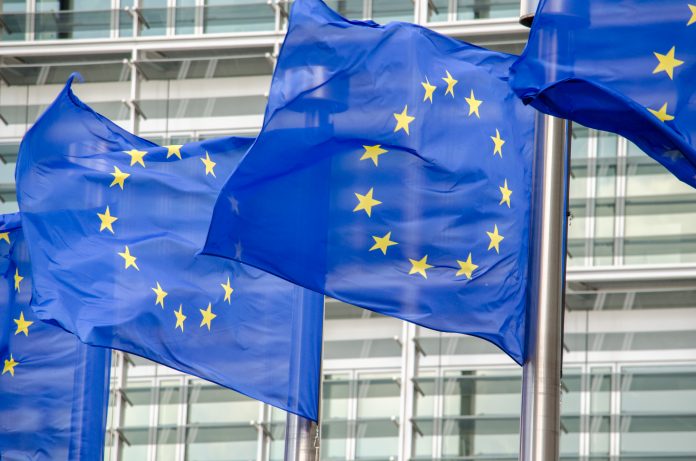Isabel Caño Aguilar, Vice-President for Communication at the European Economic and Social Committee, turns our thoughts to the Green Deal – and asks if the EU’s priorities for equality and digitalisation are still in place
In the last few months, COVID-19 has been the focus of all our societies’ energy and media attention. It is logical that this should be the case: the challenges produced by this pandemic are unprecedented and their consequences are still difficult to gauge, not only from an economic and social point of view but also from a cultural and psychological perspective – and even in terms of behaviour, given the months of confinement, fear and uncertainty, not to mention the many lives that this disease has taken.
Nevertheless, the world is still turning and the European project must remain on track. A few months before the start of the pandemic, the President of the European Commission, Ursula von der Leyen, announced the priorities for her term of office, which in my view remain more valid than ever. The crisis caused by COVID-19 should not distract us from the fact that we need to face other challenges as well. If what has taken place over the last few months reveals one thing, it is the need to tackle these challenges jointly and in a coordinated way in order to do so more effectively.
Environmental crisis
Firstly, we must remain clear about the fact that the fight against climate change is still our top priority. Alongside the health crisis, there is another emergency that we must not forget: the environmental crisis that our planet is suffering. The Green Deal was a step in the right direction, but the pandemic should force us to reflect more profoundly on our economic model and the necessary transition to a more sustainable economy with proper use of natural resources. Hence the importance of designing long-term strategies to guide our policies in the right direction.
At the same time, as the European Economic and Social Committee (EESC) has already expressed in various opinions and position papers, the transition to this new economy must be fair and cannot leave anyone behind. We cannot simply consent to the idea that the inevitable economic crisis will punish the most disadvantaged sectors of our societies even more severely due to an increase in unemployment, a fall in wages and more precarious working conditions.
Equality
A few months ago, President Von der Leyen also undertook to include gender equality as a key measure. The never-before-seen image of a female president of the European Commission, leading a College of Commissioners that is gender-balanced for the first time, was like a dream come true.
Given the gender pay gap and the fact that only 8% of large companies in Europe have women in senior management positions, a genuine gender strategy for the European Union (EU) and a directive on wage transparency would be very welcome. As a woman and a trade unionist, it seems to me that we have made progress towards real equality.
We cannot simply forget about these priorities. If nothing else, the crisis has brought a renewed focus on the vulnerability of women – and not only in the labour market.
Digitalisation
The events of recent months have also demonstrated the importance of another priority set by the Commission in its work programme: digitalisation. In times of crisis, the sectors that are most committed to using digital technologies have much better prospects for the future than those lagging behind. Therefore, it is time for Europe to make a firm commitment to the digital economy, both in terms of industrial infrastructure and innovation and in creating new skills for new kinds of jobs and new ways of consuming and accessing services: new technologies should not lead to exclusion for employees and citizens.
Finally, it is very important to bear in mind that our exit from the crisis, as well as being environmentally sustainable and socially just, must be consistent with the values of the EU and must respect democracy and fundamental rights. We need to be vigilant to avoid a situation in which fear gives rise to cultural isolationism and democratic setbacks, and this will only be possible if the European institutions live up to what people expect from them.
EU’s economy
In short, the EU’s priorities remain valid, even more so than before the pandemic, and the EESC continues to support them. The EU’s economy has received a major blow, the true scale of which is not yet known, and it seems clear that the recovery requires coordinated European action and a greater allocation of financial resources.
Already before the start of the pandemic, the EESC had called for an increase in the contribution of EU Member States to the Multiannual Financial Framework (MFF) for 2021-2027, up to 1.3% of Gross National Income (GNI) (1). Given the current circumstances, it is clear that this proposal has not been ambitious enough. The EU needs a recovery plan based on an increased allocation of the MFF, a temporary increase in the expenditure ceiling to 2% and, above all, the issuance of European bonds that enable a large-scale recovery plan.
Robust public sector
If the current crisis has demonstrated one thing, it is the importance of a strong public sector to ensure social justice. In the current context, with very weak national economies, economic recovery in the EU requires joint action on the part of the Member States. This is to ensure, inter alia, the survival of the Single Market, which remains a key instrument for improving the competitiveness of the European economy and providing consumers with the best possible conditions in terms of access to goods and services.
Nothing will be the same after this pandemic. Nevertheless, we have a responsibility to channel these changes so that civil society can emerge stronger and Europe can address the remaining challenges under better conditions and — above all — united. Citizens will expect nothing less.
(1) EESC Opinion ECO/460: Multiannual Financial Framework after 2020, adopted on 19.9.2018.











